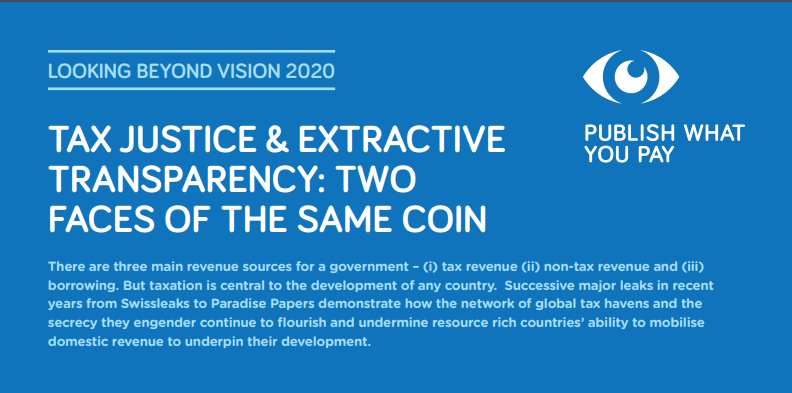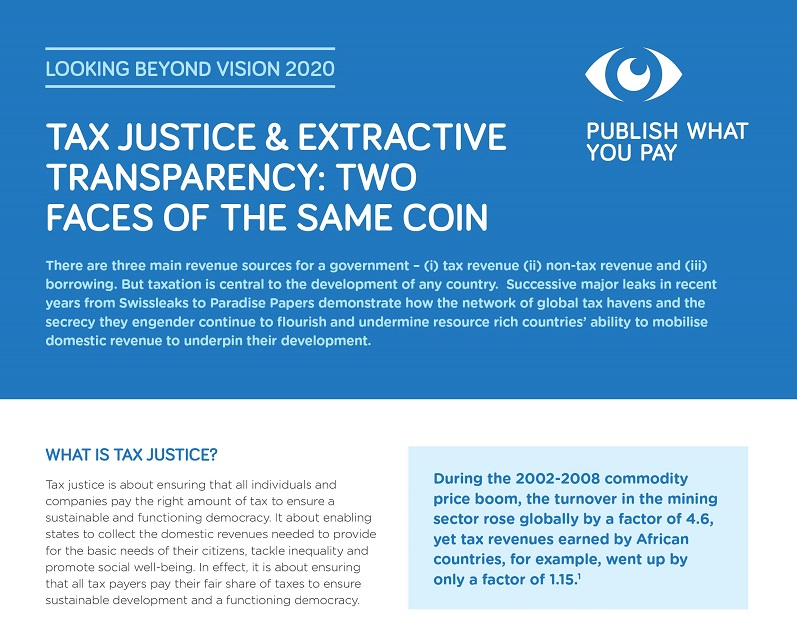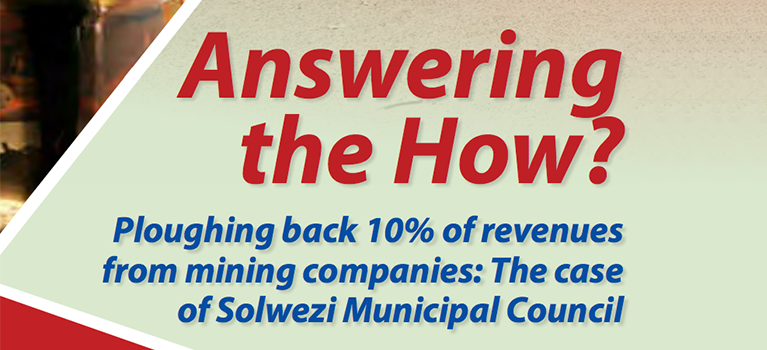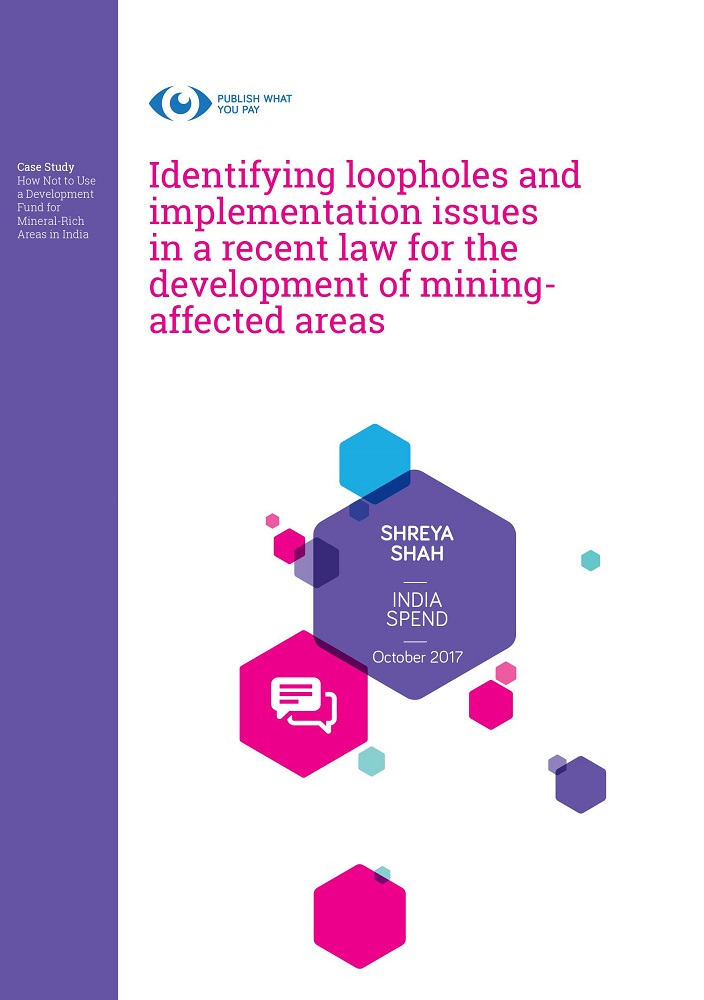News and resources
Explore our publications on a wide range of topics, to find the powerful facts, stories and approaches that underpin our work to make the extractive industry more open, accountable and participatory.
Active filters
Why is Tax Justice central to the accountability agenda in the extractives sector?
On 20 April 2018 PWYP hosted a webinar on tax and extractives as part of our ongoing engagement with PWYP members around the world to inform the PWYP 2020-2025 global strategy. Kwesi Obeng kicked off the conversation with a presentation of the key ideas in his discussion paper, with respondents Daniel Mule (Senior Policy Advisor […]
Using Onodo to visualise company ownership networks
Onodo was created in 2015 by the Spanish civil societal organisation Civio. Its goal is to visualise complex networks and to support your story-telling. Because Onodo is easy to use, the target audience does not need any technical knowledge to construct a network visualization. You can use Onodo to visualize company ownership networks to better […]
Tax Justice and Extractive Transparency: Two faces of the same coin
Publish What You Pay is working on a Global Strategy which will serve to guide the movement from 2020-25. As part of this process we are reflecting on key questions facing the movement, through Think Pieces and webinars which will raise some key questions from the piece. Find out more about the PWYP Global Strategy […]
Answering the How? Ploughing back 10% of revenues from mining companies: The case of Solwezi Municipal Council
On the 14 December 2015, Solwezi Municipal Council passed a resolution to “enhance service provision to communities affected by mining activities”. This resolution followed a proposal to invest property rates collected by the council from mining companies within mining host communities. It is against this backdrop that YAD working with Publish What You Pay Zambia […]
Minerals as a Shared Inheritance: rethinking the resource curse
Does the way that we think of natural resources encourage mismanagement and even corruption? Publish What You Pay’s (PWYP) newest member in India, the Goa Foundation, puts forward the idea that a significant step can be taken towards addressing the resource curse by seeing mineral wealth as a shared inheritance, to be held in trust […]
Identifying loopholes and implementation issues in a recent law for the development of mining-affected areas
In mineral-rich areas across India, and around the world, mining often fails to benefit local residents, degrades lands and rivers and destroys traditional livelihoods. In 2015, a new Indian programme, the Pradhan Mantri Khanij Kshetra Kalyan Yojana (PMKKKY), which means the Prime Minister’s Development Programme for Mining-Affected Regions, was established to remedy this anomaly by […]
Time to stamp out corruption in commodity trading
This post was originally posted in the Huffington Post Contributors section here. An explosive investigation by Swiss NGO Public Eye has revealed the complex tangle by which employees of Gunvor, one of the world’s biggest oil traders, offered secret payments to officials in the Republic of Congo for access to the country’s assets. The case […]
Policy brief on Double Taxation Agreements: the case of Zimbabwe
Double taxation arises when two or more tax jurisdictions overlap, such that the same item of income or profit is subject to tax in each. Double Taxation Agreements were therefore instituted as an international tax instrument for avoiding double taxation of the same income or capital to the same taxpayer in the same period in […]
Time for London’s Alternative Investment Market to embrace extractives transparency
The London Stock Exchange’s (LSE) Alternative Investment Market (AIM) was launched in 1995 for smaller and growing international companies looking to raise capital for expansion. AIM describes itself as “the most successful growth market in the world”. The UK government has sung its praises. Lesser known than the LSE’s Main Market where larger, more established […]
New ‘report card’ will hold mining companies accountable in Zambia
Publish What You Pay Zambia and Caritas Zambia are working on a tool that could finally give communities a voice. They call it the Corporate Social Responsibility Index, and the idea behind it is simple: Mining companies commit to CSR projects, and the people intended to benefit grade them on their performance.
Taking away the tax effect of tax havens
Cross border taxation methods and reverse tax credit This report introduces the reader to a much-neglected area of international taxation, tax credits, and shows how a more active utilization of tax credits and one of its accompanying features, withholding tax, can fix some of the issues we have with multinational companies not paying taxes. In […]
Is the United States getting a good deal on its natural resources? A taxing question
This case study began with a not-so-simple question: Is the United States getting a good deal for the depletion of its natural resources? Publish What You Pay – United States (PWYP-US) has worked for 13 years to open the books of oil, gas and mining companies to create a more open and accountable extractives sector. […]

















